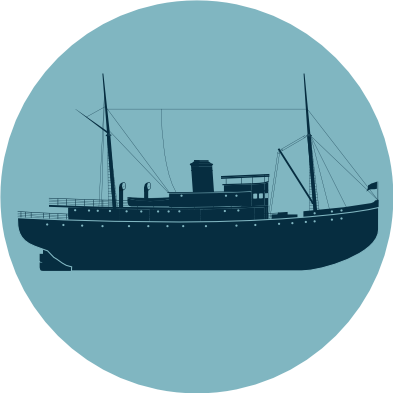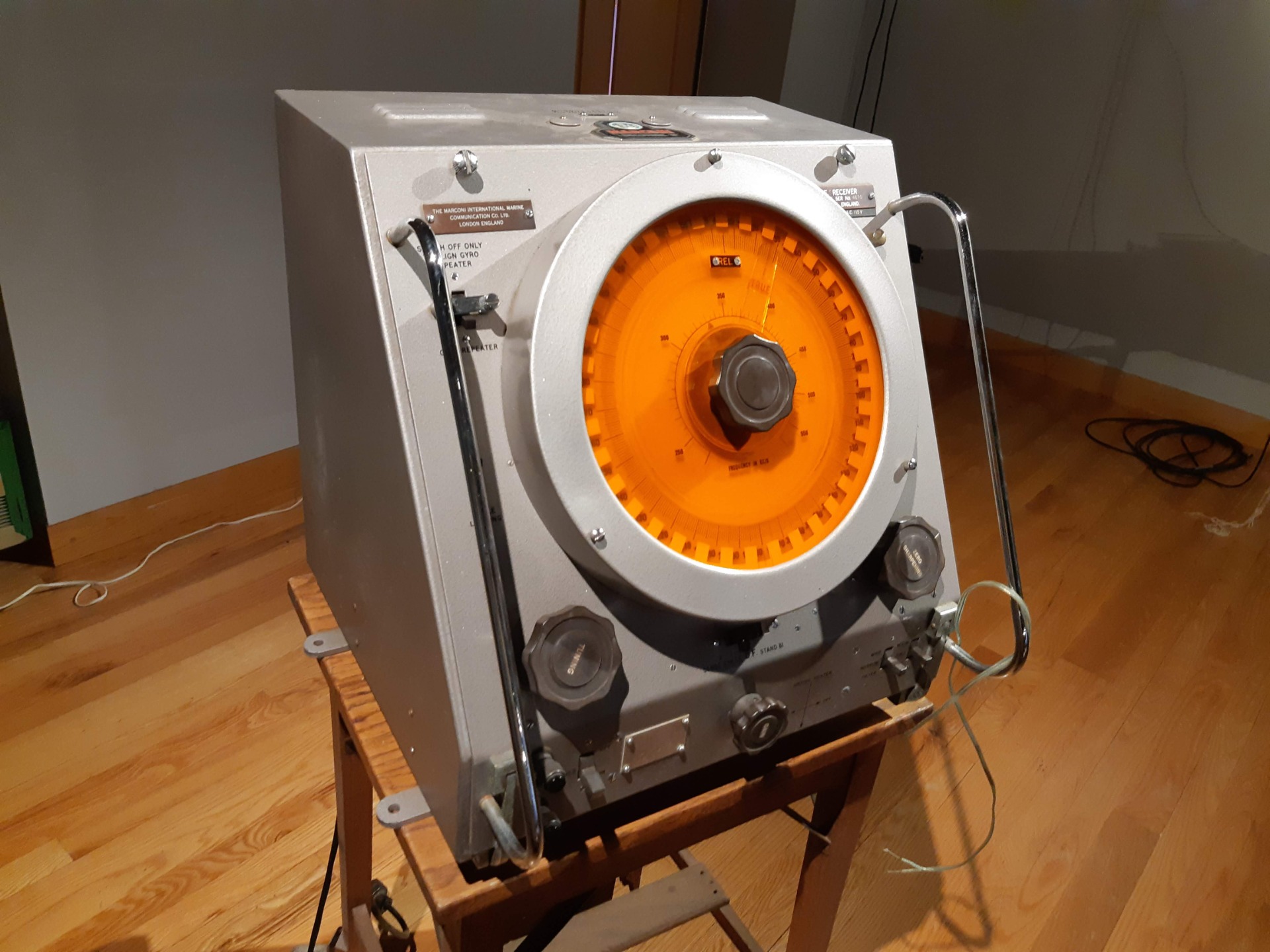
 0
0A host of navigational instruments
Navigational tools
The wheelhouse holds all the navigational instruments needed to find the ship’s bearings, steer the ship and communicate in any weather condition.

All this material helped the captain and his officers navigate safely and steer the ship to port following the rules of navigation.
Master compass

This compass uses the Earth’s magnetic field to point to the magnetic north.
It works like a hand-held compass, with the magnetic arrow lining up with the Earth’s magnetic field.
Gyroscopic compass

This type of compass points to the geographic north using the Earth’s rotational axis.
Inside the instrument is a gyroscope on a horizontal axis that lines up with the Earth’s pole axis, owing to physical phenomena.

Gyrocompass repeater

Data recorded by the gyroscopic compass could be read on this instrument.
Clear view screen

Such a view screen ensured clear visibility from the wheelhouse. By revolving very quickly, it cleared away rain, snow and sea spray from the window.
Recording echo sounder

This device works on the same principle as that of a radar, but it uses sound waves instead. It gauges the depth of water under the keel of a ship.
Depth is determined by the time that a sound wave emitted by the ship takes to bounce back from the bottom of the waterway to the surface. The antenna of the echo sounder is located under the ship’s hull.
Radio direction finder

A radio direction finder is a radio wave receiver that is used to determine the bearings (direction) from which radio signals are emitted by fixed and known transmitters, such as a radio beacon or transponder.
Once the radio direction finder has received at least three signals, it can determine the ship’s position.

Radiophone

This radiophone uses the AM band. It is the forebear of modern radios.
As for land radios, the AM band in navigation has disappeared almost entirely.
Sound-Powered Telephone

There are four telephones like this one on the ERNEST LAPOINTE. Crew members could talk to each other using these phones.

These devices work without any external power supply: they self-operate with sound vibrations from the speakers’ voice.
